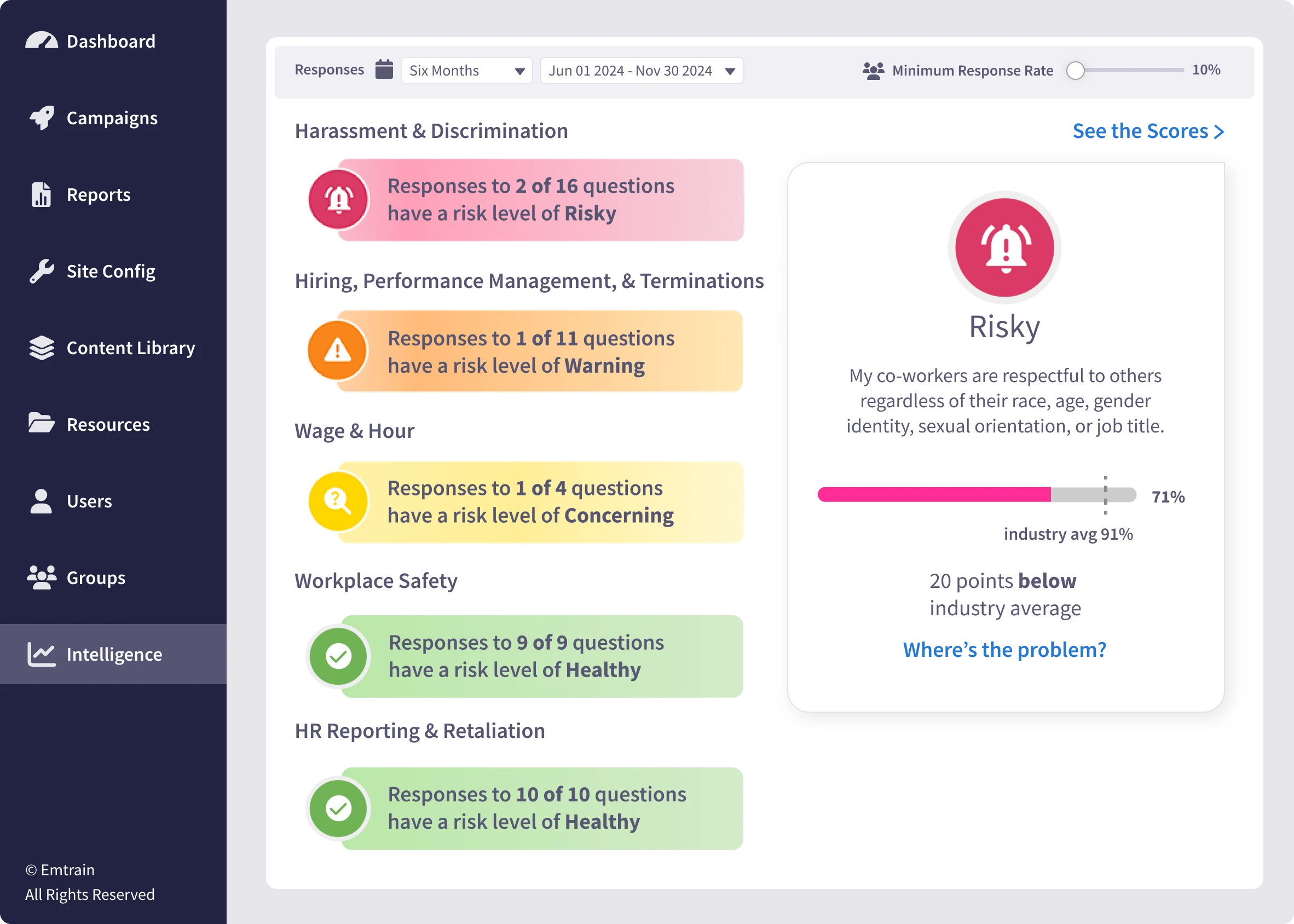Home » Concepts » Diversity, Equity, & Inclusion » Generational Conflict
Generational conflict arises from differences in values, communication styles, and work-life expectations between generations in the workplace. These conflicts can lead to misunderstandings, tensions, and even harassment if left unresolved. Addressing these differences fosters collaboration, inclusivity, and a respectful work environment.
Emtrain’s harassment training course is engaging, interactive, and designed to spot and reduce EEO risk.

Generational conflict in the workplace has become increasingly prominent as the workforce spans multiple generations. Baby Boomers, Gen X, Millennials, and Gen Z bring diverse perspectives, priorities, and communication styles.
Generational conflict occurs when differing life experiences, values, and expectations clash in the workplace. For example:
Misunderstandings or stereotypes, such as labeling younger employees as “lazy” or older employees as “outdated,” can fuel workplace tension. These dynamics hinder collaboration, innovation, and overall workplace morale.
Generational conflicts like these, as noted in the SHRM report, can significantly affect productivity and collaboration. The article highlights how generational differences in workplace priorities—such as work-life balance and communication preferences—often lead to misunderstandings and friction among team members. These tensions, if unaddressed, not only hinder collaboration but also impact employee engagement and overall organizational effectiveness. By implementing proactive strategies and fostering mutual understanding, organizations can turn these conflicts into opportunities for growth and improved teamwork.
Acknowledging and addressing generational differences is key to fostering collaboration and respect. Strategies include:
Proactive steps to address and mitigate generational conflict include:
Watch a scenario illustrating a manager navigating differing generational expectations around work-life balance and after-hours commitments.